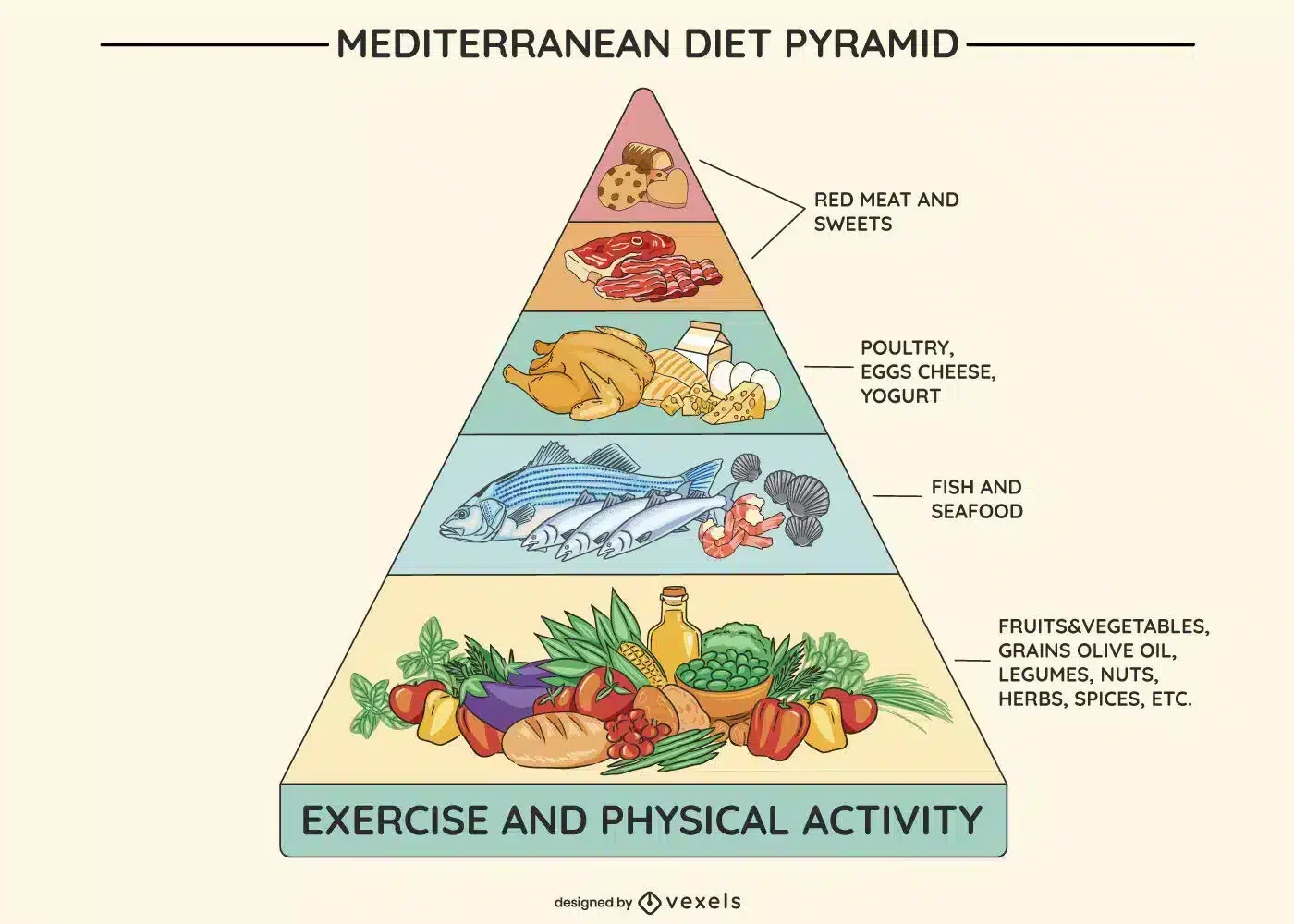
The Mediterranean diet has emerged as a dietary model associated with better health and longevity. While not a miracle solution, its focus on varied, flavorful, plant-based foods has been shown to have significant benefits for cardiovascular health and beyond. This dietary pattern is based on the traditional diet of Mediterranean countries such as Italy, Greece, and Spain, and has gained scientific recognition thanks to numerous studies that support its positive effects.
In the 1950s, comparative studies between the diets of Northern European countries and those of the Mediterranean revealed significant differences in the incidence of cardiovascular disease and other health problems. For example, in one study, residents of the island of Crete were found to have a much lower incidence of cardiovascular disease compared to Finns, despite consuming a high-fat diet. This finding sparked scientific interest in the Mediterranean lifestyle and diet.
The Mediterranean diet does not focus solely on food selection, but also considers cultural and social aspects, such as sharing meals with family or friends. In terms of composition, this dietary pattern is characterized by a high consumption of fruits, vegetables, legumes, nuts, fish, and extra virgin olive oil, along with a moderate intake of dairy products and a lower amount of red meat and refined sugars.
The benefits of the Mediterranean diet go beyond cardiovascular health. Studies have shown that following this dietary pattern can reduce the risk of developing metabolic diseases such as type 2 diabetes, as well as protect against neurodegenerative diseases such as Alzheimer’s. Additionally, it has been associated with a lower incidence of certain types of cancer.
One of the pillars of the Mediterranean diet is the consumption of olive oil, which is an important source of monounsaturated fatty acids and phenolic compounds with antioxidant and anti-inflammatory properties. These components can help reduce oxidative stress and inflammation in the body, thus contributing to the protection of cardiovascular and neuronal health.
In addition to food selection, other aspects of the Mediterranean lifestyle are also important. For example, regular physical activity and enjoying food in a relaxed and socially active environment are common characteristics in Mediterranean regions and contribute to the health benefits associated with this diet.
Despite its numerous benefits, it is important to emphasize that the Mediterranean diet is not a one-size-fits-all solution for all health problems. It is part of a healthy lifestyle that also includes regular exercise, maintaining a healthy body weight, and abstaining from tobacco and excessive alcohol consumption.
In summary, the Mediterranean diet is a dietary model well supported by scientific evidence that promotes cardiovascular and general health. By focusing on fresh, varied, and flavorful foods, along with positive cultural and social aspects, this diet offers a delicious and effective way to improve health and well-being for everyone, regardless of their geographic location.
Important Note: aceitedelcampo.com promotes the consumption of extra virgin olive oil for its culinary qualities and health benefits. However, no medication or current treatment should be replaced without the guidance of a healthcare professional.




ALZAYT EXPORT SL
info@aceitedelcampo.com
C/ Eduardo Bosca 19, 2-5
46023 Valencia
Subscribe and receive a coupon by email for your next purchase.